Zagreb Pays Homage to John Lennon at Croatian National Theatre
April the 25th, 2023 - The Croatian National Theatre (HNK) in Zagreb recently paid homage to the English music legend John Lennon in the form of an opera written by no less than former Croatian President Ivo Josipovic.
Composers love to play with words, to listen to how they sound when set to music, to write and re-write the notes until they feel the ‘obtained’ amalgamate expresses an emotion, a situation or a story the way they see it in their never resting imagination. I myself think they hear the music constantly, like when walking around a shopping mall - not as a noise, but as some musical syllable or a theme. And so they make our lives indescribably richer and happier. Just try to imagine what we'd be listening to on the radio - news and more news, tales, just words, words, and more words. Imagine.
Zagreb, the capital city of all Croats wherever they may be located around the world, would maybe surprise you with the number of cultural and arts institutions it boasts, and, especially, with the number of cultural happenings every single day. It kind of reminds me, however on an immeasurably smaller scale, of my young days in New York when I wanted to see every single thing, every single day, and kept feeling unjustly deprived because I simply couldn't. The same happens in Zagreb, albeit proportionately.
Zagreb's very first public theatre came to be in the year 1834. The present imposing building of the Croatian National Theatre has been there ever since 1875. It's hard to imagine how many things have taken place there in that time. In the Croatian National Theatre in Zagreb, usually only ''big'' pieces of theatre, opera and ballet are performed, and they're not only big, but also so good that every opera evening over the last several months has been a total sellout.
I have a special affinity with that theatre's opera intended for kids up to three years old. It's praiseworthy and a big congratulations to the artists, and to the management, is due. I was surprised fairly recently when a teenager asked who (tf) Paul McCartney is after he released a song with Rihanna and Kanye West, realising how talented he is. That can easily transport us back to those days of a world blooming and flourishing in more sense than one, with The Beatles as an emblematic group of young men who ruled the world ( because they ruled our hearts).
If you weren't around back then, Google is your friend. It will tell you precisely who John Lennon was. Croatian composer Ivo Josipovic, who is also the country's ex president, was among the billions utterly shocked by the murder that suddenly put an end to John Lennon’s life at the age of 40. Intrigued by the psychological profile of Mark Chapman who shot
Lennon in the street while declaring himself to be true fan, Josipovic felt the urge to dedicate a piece of performative work to Lennon and to his memory. It took years until it finally came out of the nib of his pen as an opera simply entitled ''Lennon''.
''Lennon'' is a big piece of theatre, involving a large ensemble of singers, dancers and a full orchestra. As expected, the music performed has nothing to do with the music of The Beatles. In a modern musical idiom, in brief, it tries to imagine what flashes bolted through Lennon’s mind between the moment he was shot and the moment he died. His grief for the mother, whom he lost when he was just 18, plays out, as do his ambiguous relationships with his first wife Cynthia and with May, his assistant, and the other three musicians from the band (where Paul McCartney appears as the closest to Lennon) and, particularly, naturally and throughout the piece, his relationship with Yoko Ono, his second wife, plays out.
In other words, the last seconds of his natural existence on this Earth play out, lasting for almost two hours, giving shape to his memories, emotions and, especially, to his feelings for the most important people in his life as he slips from this world into the next. Amongst it all, he occasionally alludes to how it is necessary to give peace a chance, the cause Lennon stood for so firmly and profoundly.
Yet another very interesting feature of ''Lennon'' is that it is sung in English. Josipovic's work was clearly a huge undertake, with beautiful artistic delivery among impressing stage sets and a masterful design of lights.
Thanks to the cooperation of the Zagreb Music Biennale and the Croatian National Theatre in Zagreb, this project causes feelings of warmth and reminds us that this small nation has always been a participant and a contributor to the artistic memory of the world.
For more, make sure to follow our lifestyle section.
Croatian National Theatre in Rijeka Joins Creative Europe Project, Worth €3 Million
March 9th, 2022 - Twelve countries from Europe and Africa are joining forces in a cultural project that will be implemented over the course of four years
The Croatian National Theatre Ivan Zajc from Rijeka will partake in a four-year EU project together with a number of major European and African cultural institutions and cities.
The recently approved project, entitled DECONFINING, will be co-financed by the Creative Europe programme. The project is worth over €3 million in total, and the budget granted to the Croatian National Theatre Ivan pl. Zajc will amount to about €400,000.
The DECONFINING project will connect cultural scenes, artists and scientists, as well as universities and audiences from Europe and Africa. The Zajc theatre will create a co-production with the largest theatre in Africa, the Grand Theatre National Doudou Ndiaye Coumba Rose (National Theatre Dakar) from Dakar, Senegal.
Both Croatian and Italian drama ensembles of the Zajc theatre will participate in productions of plays, installations and podcasts; they’ll plan international tours, create an open digital archive, organise forums, conferences and mobility platforms, and publish an anthology of new artistic works.
The project involves 12 partners from 11 European and one African country. Along with the Zajc theatre from Rijeka, the partners are: ITI Germany from Berlin (project owners); Pro Progressione Kulturalis Nonprofit Kozhasznu KFT, Hungary; Bodo2024 ICS, Norway; Kulturhaupstadt Bad Ischl - Salzkammergut 2024 Austria; National Kaunas Drama Theatre, Lithuania; Art Transparent, Poland; Umeni Institute - Divadelni Ustav, Czech Republic; On the Move, Belgium; Goethe Institut Madrid, Spain; Institute of Transmedia Design, Slovenia and Culture Funding Watch, Tunisia.
This is the third project of the Croatian National Theatre Ivan Zajc that is co-financed by the Creative Europe programme.
The first was (Re)Discovering Europe, a project which dealt with the problems of minorities in Europe and involved a unique co-production of five European minority theatres - Pirandello’s Mountain Giants, performed in five different languages during the same play.
The second European project of the Rijeka theatre focused on audience development. Through the ADESTE + project, the Zajc theatre implements programmes designed to reach new audiences and solidify the connection of the existing audience with its theatre. One of the results of the ADESTE + project is the recently opened theatre gallery Zajc, first of its kind in Croatia.
Source: Croatian National Theatre Ivan pl. Zajc
Opera Singers to Help in Post-COVID Rehabilitation
ZAGREB, 5 March, 2021 - Several professional opera singers on Friday launched the "Breathe" campaign to help as of 8 March in the rehabilitation of people who have recovered from COVID-19 but still have difficulty breathing.
The initiative came from Croatian National Theatre (HNK) Zagreb singers Ljubomir Puškarić, Adela Golac Rilović, Ivana Lazar, Ivica Trubić, Tomislav Mužek, Luciano Batinić, Tvrtko Stipić and Ozren Bilušić, and HNK Osijek singers Martina Puškarić and Berislav Puškarić, Ljubomir Puškarić said on Friday, adding that singers from all of Croatia were joining the initiative.
Puškarić said a Facebook group was created for everyone who had experienced serious COVID-19 symptoms and had difficulty breathing even after recovering.
He said those joining the group would obtain information on breathing exercises used by opera singers and be able to work with instructors, all professional operas singers, based on one-on-one online consultations.
To begin with, each participant will get at least one session a week in agreement with an instructor. The therapy is planned to last six weeks. The idea comes from England and a survey has shown that the psychophysical condition of persons working with opera singers has improved.
Marija Ruzicka Strozzi Park: Zagreb Savica Park Future Secured By Renaming
November 6, 2020 – With its renaming as Marija Ruzicka Strozzi Park, the much-loved area of neighbourhood greenery has secured its future. We look at the internationally-famous actress, Marija Ruzicka Strozzi, who lends the park her name
The Zagreb neighbourhood of Trnjanska Savica is not without greenery. Sitting next to Novi Zagreb, it shares some of the same functional, socialist architecture and town planning. Thus, the larger apartment buildings in its east all lie on pretty, tree-lined avenues, as do the smaller residential properties in its west. More commonly referred to as simply Savica, the hood's southerly border is the great Sava river. Residents stroll or walk their dogs along its banks. Savica is a nice place to live.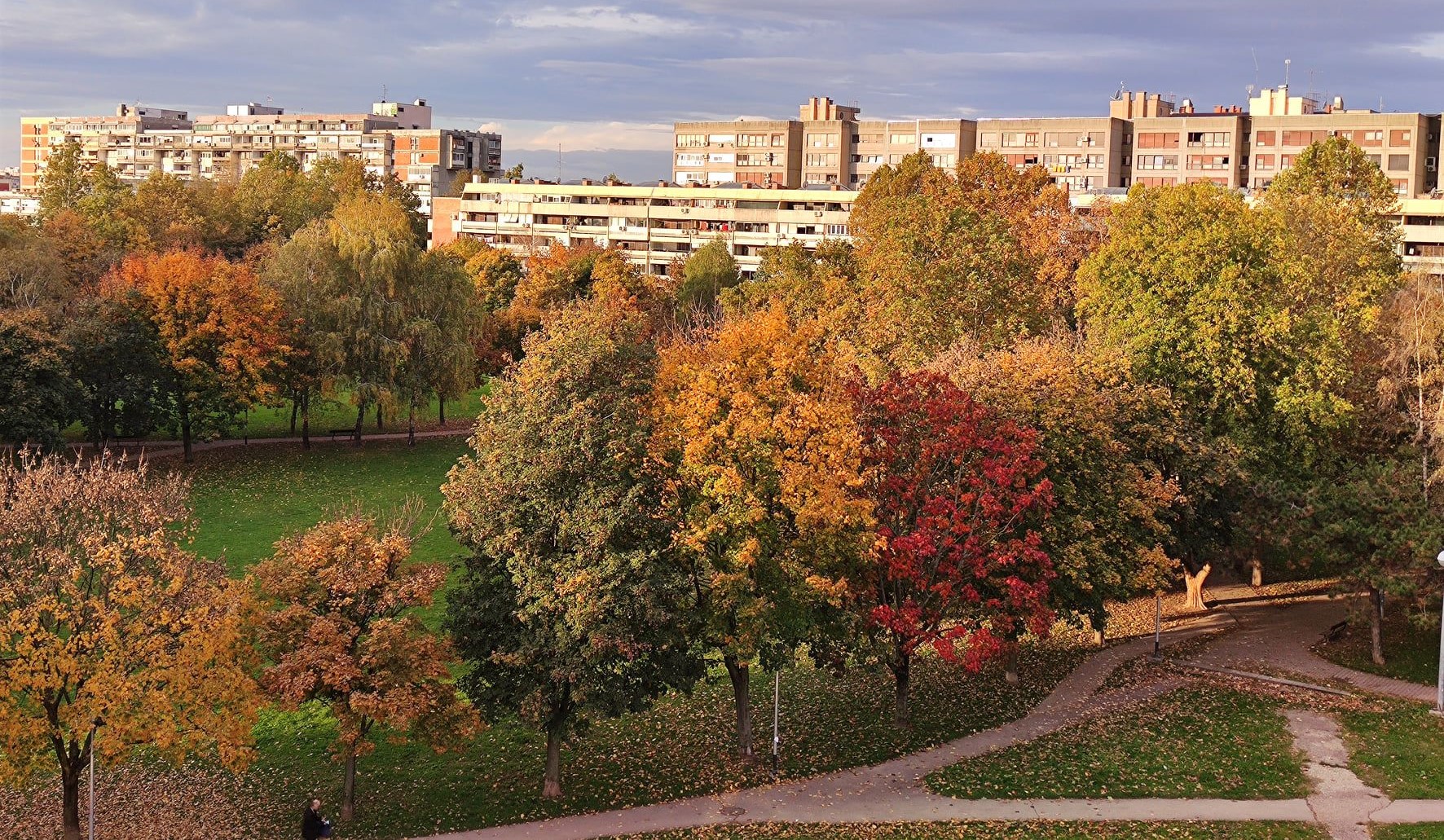 Marija Ruzicka Strozzi Park, Savica, Zagreb in all its autumnal glory
Marija Ruzicka Strozzi Park, Savica, Zagreb in all its autumnal glory
When dog walkers, riverbank runners and Savica residents with a south-facing balcony look across the Sava, their vista is filled with the great expanse of Bundek Park. It is the largest city park south of the river. Savica's own park is smaller, less spectacular. But, by the people who live here, it is no less loved. Watched over by protecting residents, the park this looks to have secured its future with its official renaming as Marija Ruzicka Strozzi Park.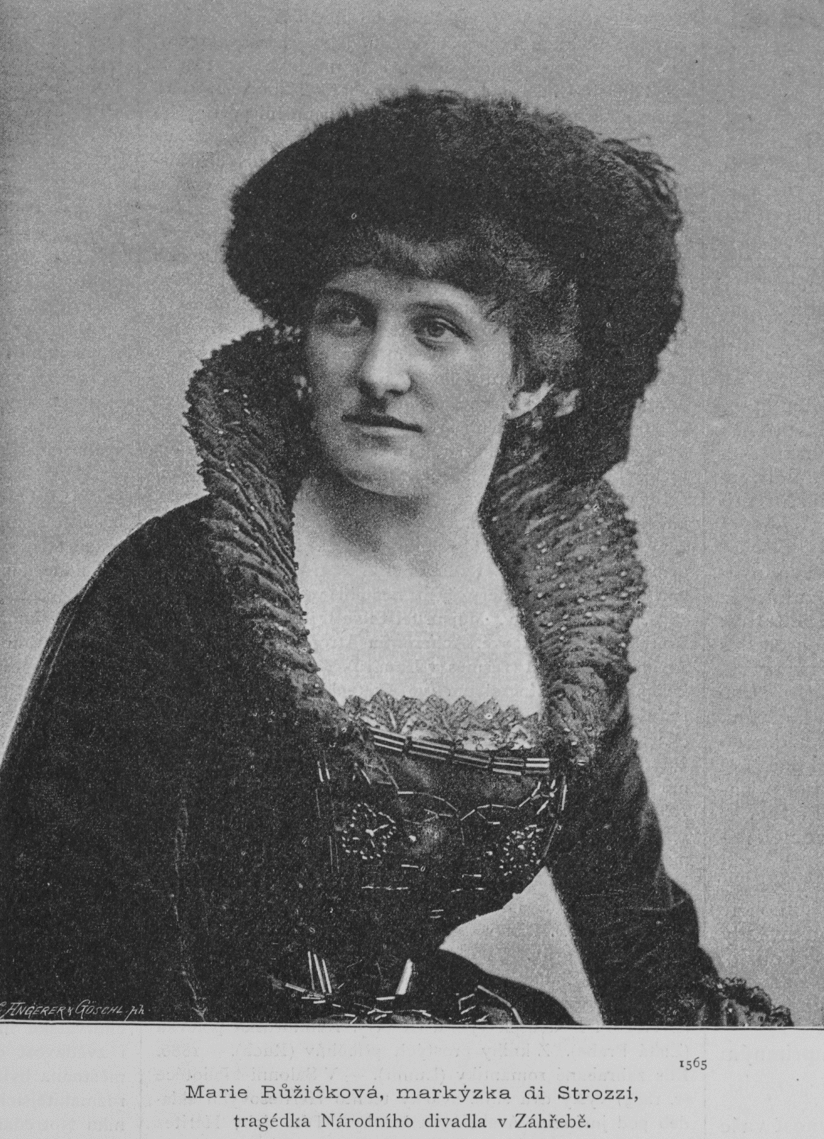 © Institute of Czech Literarture
© Institute of Czech Literarture
Today, the name of Marija Ruzicka Strozzi is heard much less frequently than it was at the height of her fame, towards the end of the 19th century and the beginning of the next. But, back then, it was a name known across the whole of Europe. One of the pre-eminent actresses of her generation, this Zagreb resident was described by the most-widely read Parisian weekly newspaper of the time as the greatest tragedy performer in all of the Slavic South. She gave celebrated performances in Brno, Prague, Sofia, Ljubljana, Sarajevo, Mostar, Cetinje, Belgrade, Nis, Kragujevac and was such an integral part of the theatre in her home city of Zagreb, that she is the only performer ever to have had their statue placed within the Croatian National Theatre Zagreb during their own lifetime.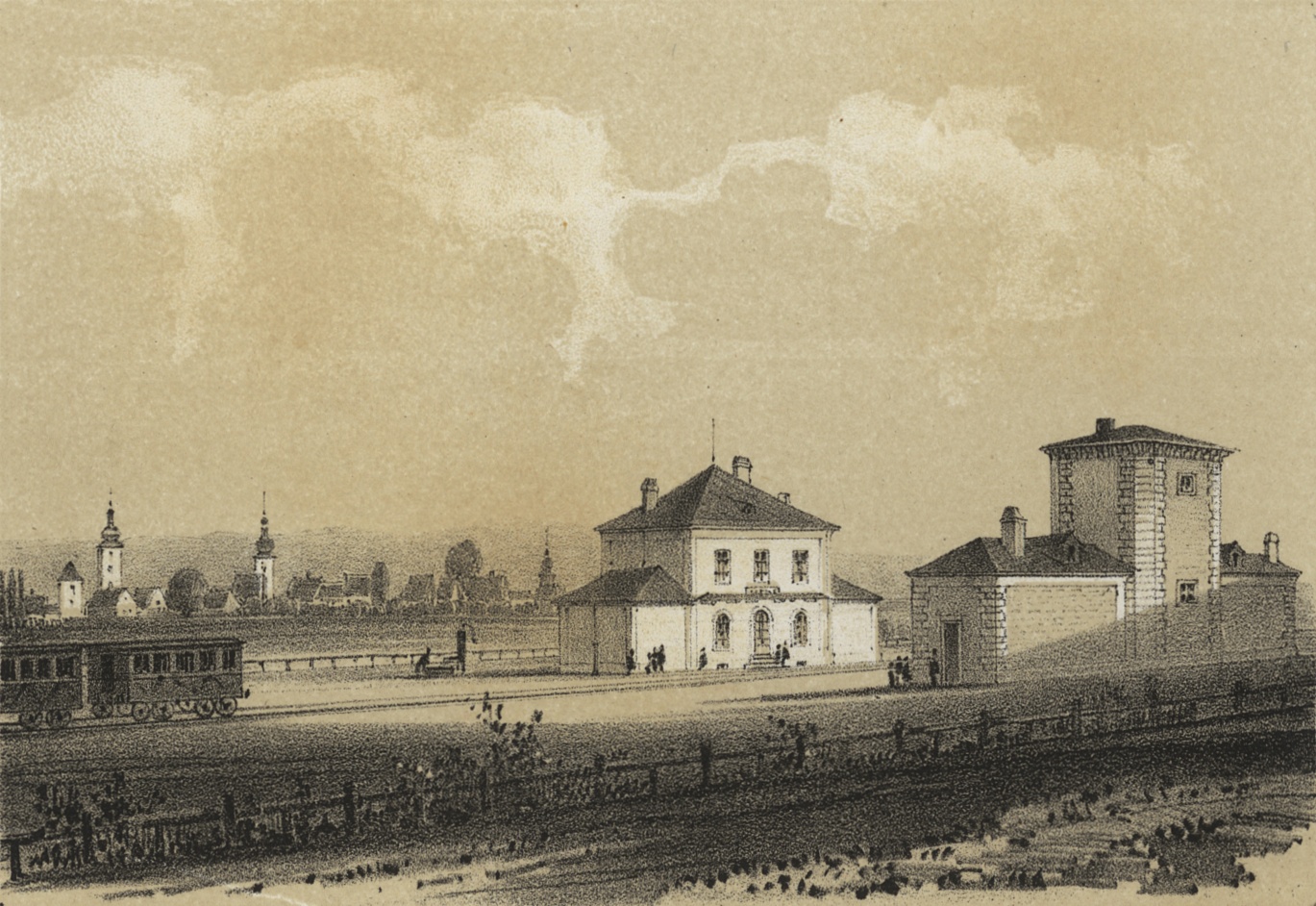 Litovel in today's Czech Republic, painted in 1845, just five years before the birth of Marija. It was then part of the Austrian Empire, whose state railway is here depicted © Ludwig Förster (1798-1863), Amédée Demarteau - FÖRSTER, Ludwig.
Litovel in today's Czech Republic, painted in 1845, just five years before the birth of Marija. It was then part of the Austrian Empire, whose state railway is here depicted © Ludwig Förster (1798-1863), Amédée Demarteau - FÖRSTER, Ludwig.
Marija Ruzicka Strozzi was born in 1850 in the Moravian town of Litovel, then part of the Austrian Empire, today within the Czech Republic. So pleased was he at his daughter's birth that Marija's musician father, Leopold Ruzicka, went to the local inn to celebrate. There, he met fellow Moravian Josip Freudenreich. It was a chance encounter - Freudenreich was only visiting, his current place of residence was Zagreb where he was an actor with the city theatre. The two struck up a friendship over several days and Freudenreich was happy to recommend his friend to the theatre director for a role with their orchestra. Aged just four months, Marija Ruzicka Strozzi and her family moved to Zagreb.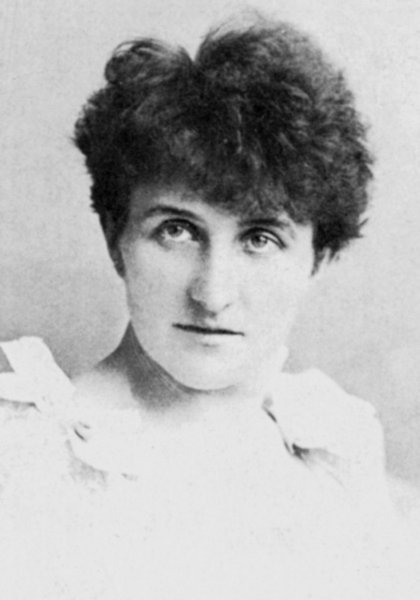
Leopold served four years in the orchestra of the Zagreb theatre but, struggling to feed the family on a musician's wage, he opted to accept the offer of a clerk's position in Varaždinske Toplice. The family moved there, but after Marija finished high school and following the tragic death of Leopold aged just 30, her mother took Marija back to Zagreb and enrolled her in a Catholic German high school.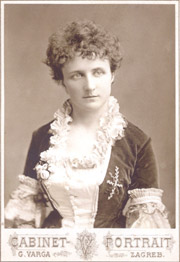
Marija had begun singing and acting as a child and continued to do so at convent ceremonies. In 1865, her mother sent Maria on a singing course at Zagreb's Music Institute where she was marked as potential for the Vienna Conservatory. Sadly, Marija damaged her voice, ending the opportunity. However, luck would visit the Ruzicka family for a second time in the form of Josip Freudenreich. By 1867, Freudenreich was himself manager of the Zagreb theatre and invited Marija to audition. She made her debut on January 2 the following year, commencing the longest-running career of any actress from the region. She spent almost 70 years playing around six hundred roles over several thousand performances.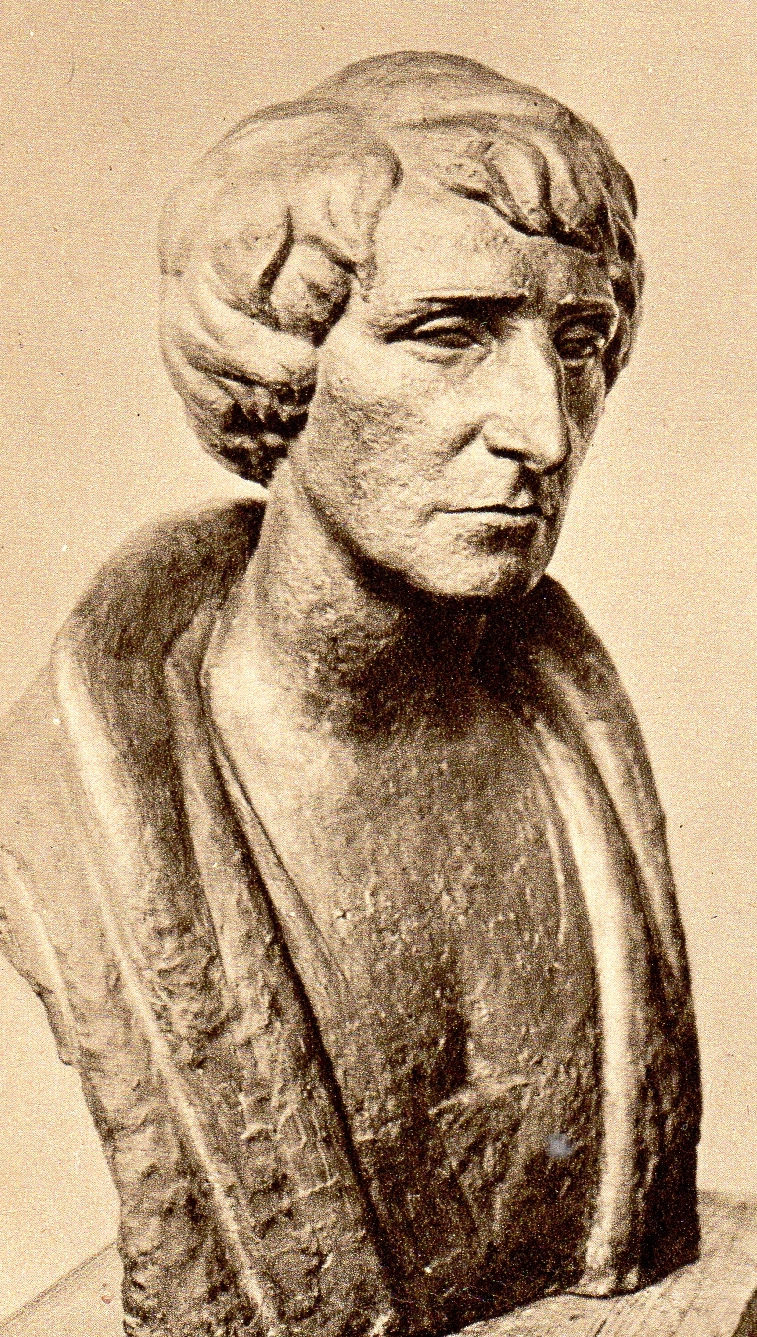 One of the statues of Marija that can be seen at the Croatian National Theatre Zagreb
One of the statues of Marija that can be seen at the Croatian National Theatre Zagreb
In addition to the German language, Marija began learning French as a young actress to give her a better perspective on the texts and roles she learned. Of course, she also spoke Croatian and mostly performed using this language, even under threat of violence (Italian nationalists in Zadar warned her against using her mother tongue on the city theatre stage - she ignored them).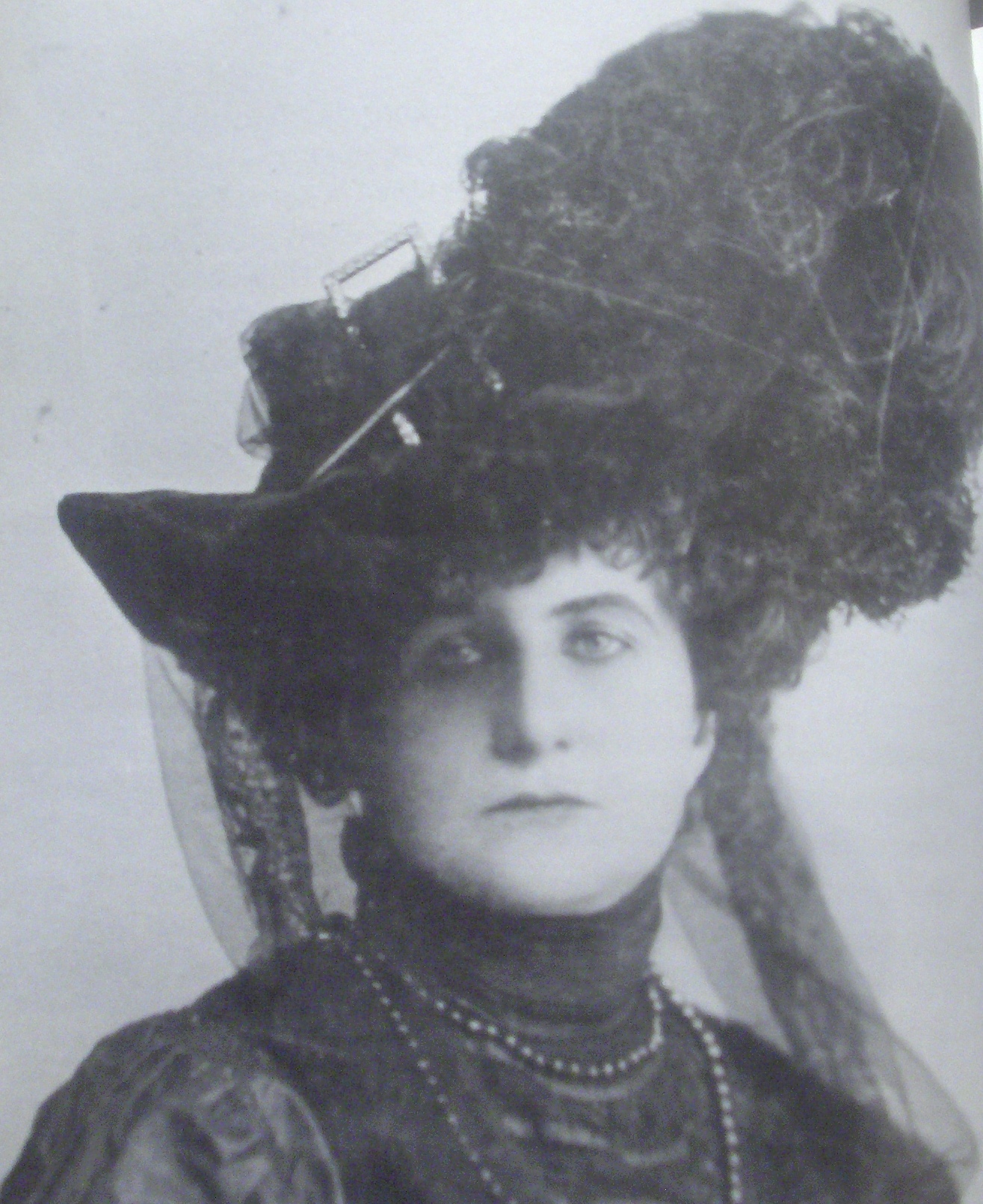 This picture of Marija was the source for a commemorative stamp issued by the Croatian Post
This picture of Marija was the source for a commemorative stamp issued by the Croatian Post
Marija spent all of her life in Zagreb, except for a small period in 1878 when she appeared as a guest star in Vienna while Zagreb performers were on strike. So delighted were the Vienna Burgtheater with her performance that they offered Marija a permanent position. She turned them down, recounting afterward in her diary “My life is hard, but I would never leave Zagreb. I am here and I stay here even though I and my children are in trouble, especially in the winter in a cold room when I learn roles at night.”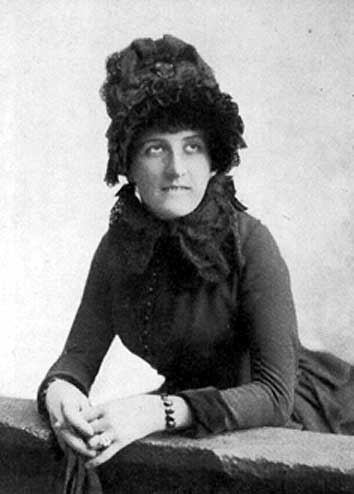
At the beginning of her career, Marija Ruzicka met Ferdinand Strozzi and married him in 1871. They had eight children together, Marija wrapping herself in corsets in order to continue performing while pregnant. Sadly, only three of her children survived, but two of them made a significant mark on Croatian culture. Marija's daughter Maja Strozzi Pečić was a world-famous opera singer and her son Tito Strozzi was a prominent actor and theatre director. Subsequently, Maja Strozzi gave birth to a son, Boris Papandopulo who would become a renowned composer, and the granddaughter of Tito Strozzi and his wife, actress Eliza Gerner, is the actress Dora Fišter Toš. Sadly, in 1905 Ferdinand Strozzi died during a visit to Sofia. At his funeral, Ferdinand's son Tito walked behind his father's coffin alongside Miroslav Krleža, the two thirteen years olds inseparable as best friends.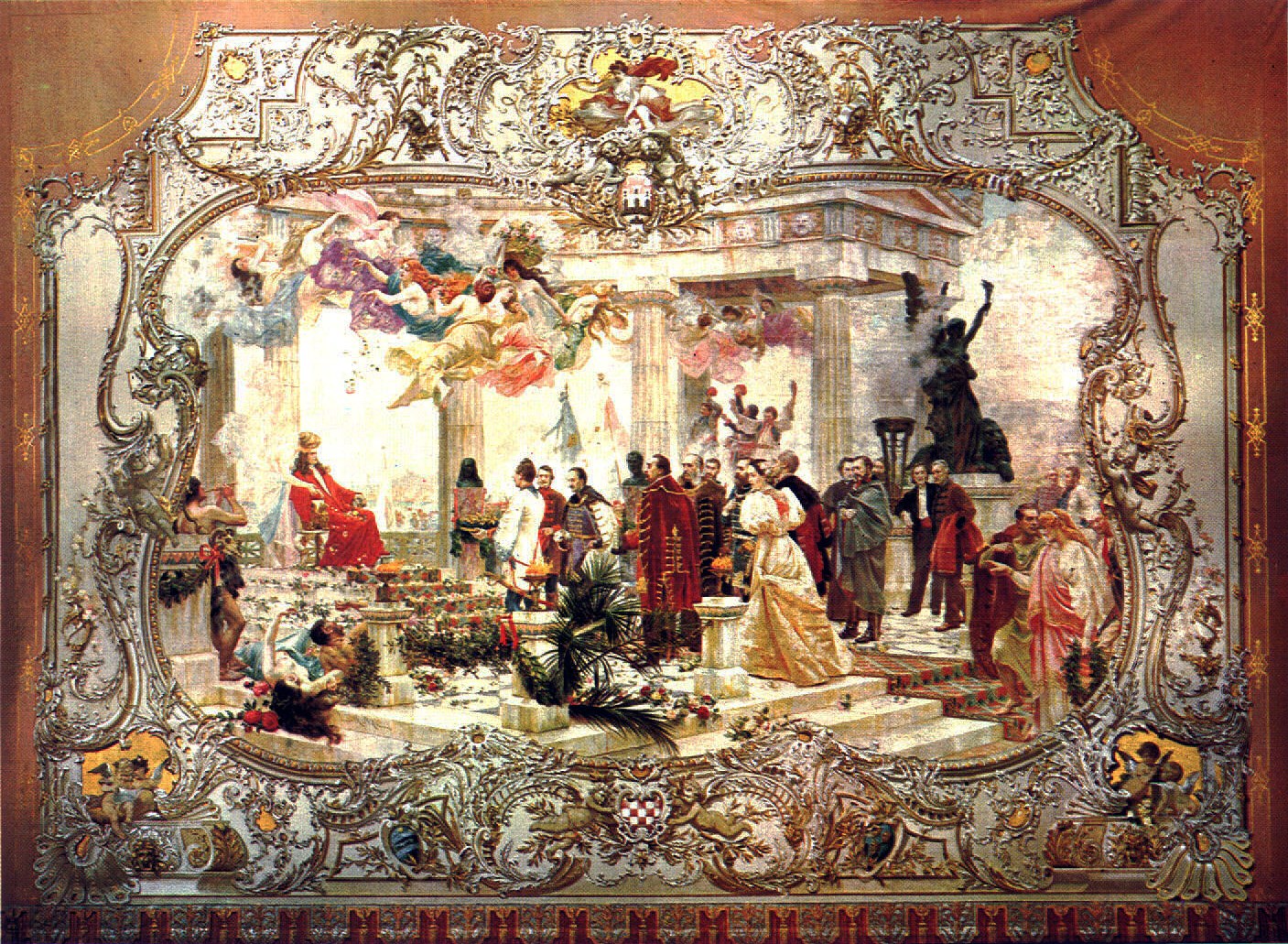 Vlaho Bukovac's Illyrian Revival curtain for the Croatian National Theatre Zagreb in which Marija is depicted © Croatian National Theatre Zagreb
Vlaho Bukovac's Illyrian Revival curtain for the Croatian National Theatre Zagreb in which Marija is depicted © Croatian National Theatre Zagreb
Marija Ruzicka Strozzi spent an uninterrupted 68 years as a leading actor. By 1896 she had been recognised as such a significant talent that she was depicted by famous Croatian artist Vlaho Bukovac on his Illyrian Revival curtain for the Croatian National Theatre Zagreb. In 1918, she was celebrated at the theatre on the 50th anniversary of her career and again in 1928 on the 60th. On the 65th anniversary of her work, she received a statue in the Croatian National Theatre, where today you can find two statues of Marija Ruzicka Strozzi. She played her final roles in 1936 in Tolstoy's Resurrection and in Border Guards, often regarded as the first Croatian folk play - it had been written back in 1856 by the old Ruzicka family friend, Josip Freudenreich.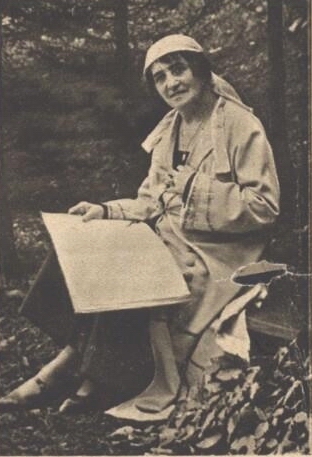
Marija pictured in 1928
Marija Ruzicka Strozzi died on 27 September 1937. Having made such a significant contribution to the culture of Zagreb over so many years, her funeral procession from the Croatian National Theater to Mirogoj cemetery drew thousands. Although her son Tito Strozzi and her grandson Boris Papandopulo already have streets named after them, it is not until the naming of the Savica park that Marija Ruzicka Strozzi has been recognised in her home city with the assigning of her name to a public place.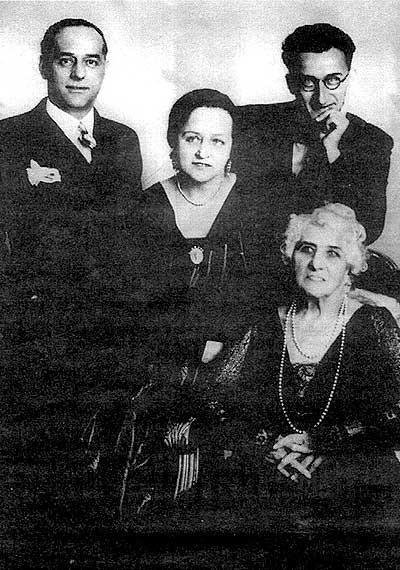
Marija and her children
In doing so, Zagreb not only pays tribute to one of the greatest acting talents ever to have come from the city, but it also safeguards the future of the Savica neighbourhood's central park. For generations to come, families and children will enjoy its greenery and learn the name of the great Marija Ruzicka Strozzi.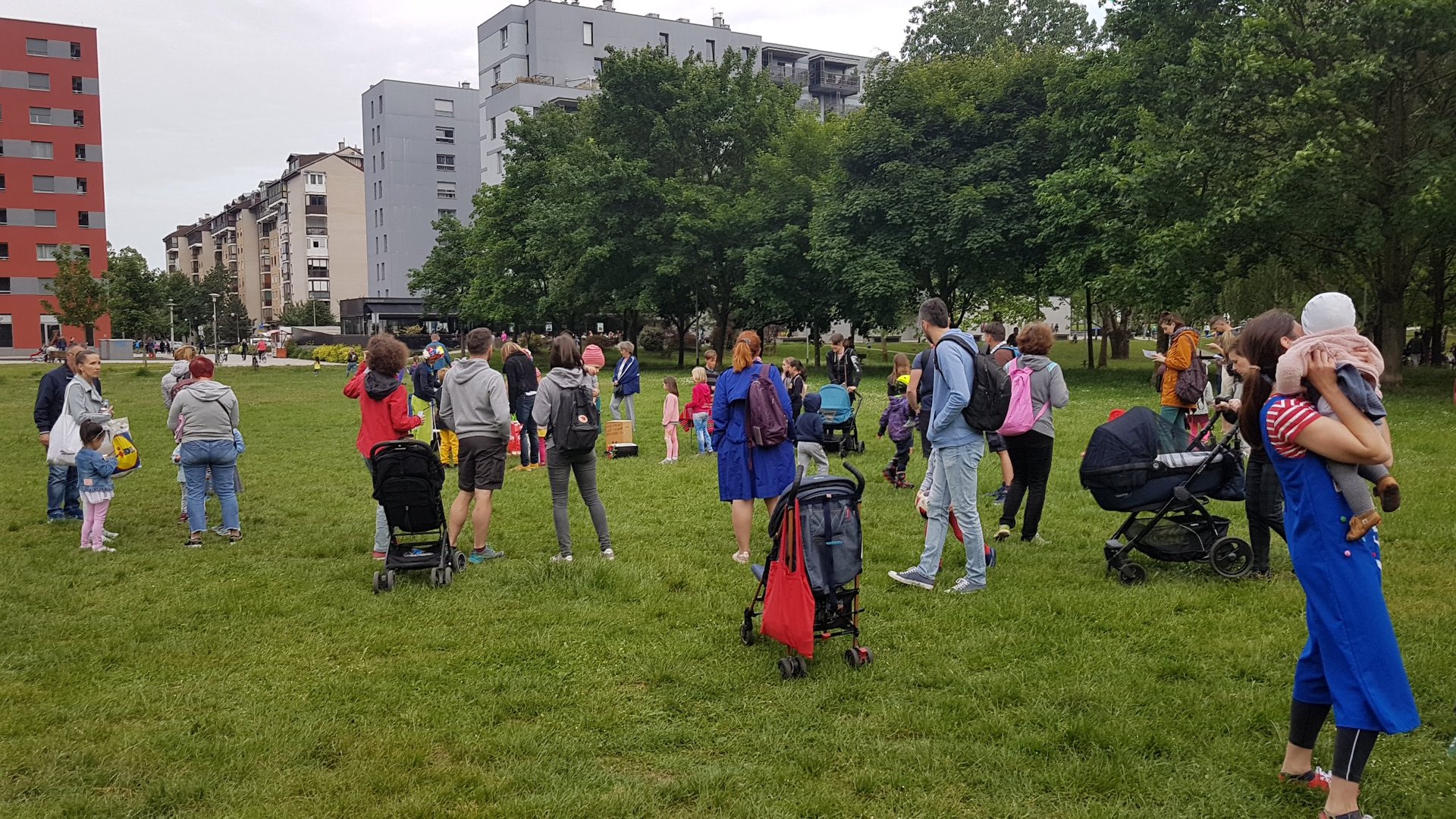 Marija Ruzicka Strozzi park is a popular place for recreation, social activities and meeting for all ages of Savica residents and their guests
Marija Ruzicka Strozzi park is a popular place for recreation, social activities and meeting for all ages of Savica residents and their guests
All colour photographs © Savica za Park, all uncredited photographs lie within the public domain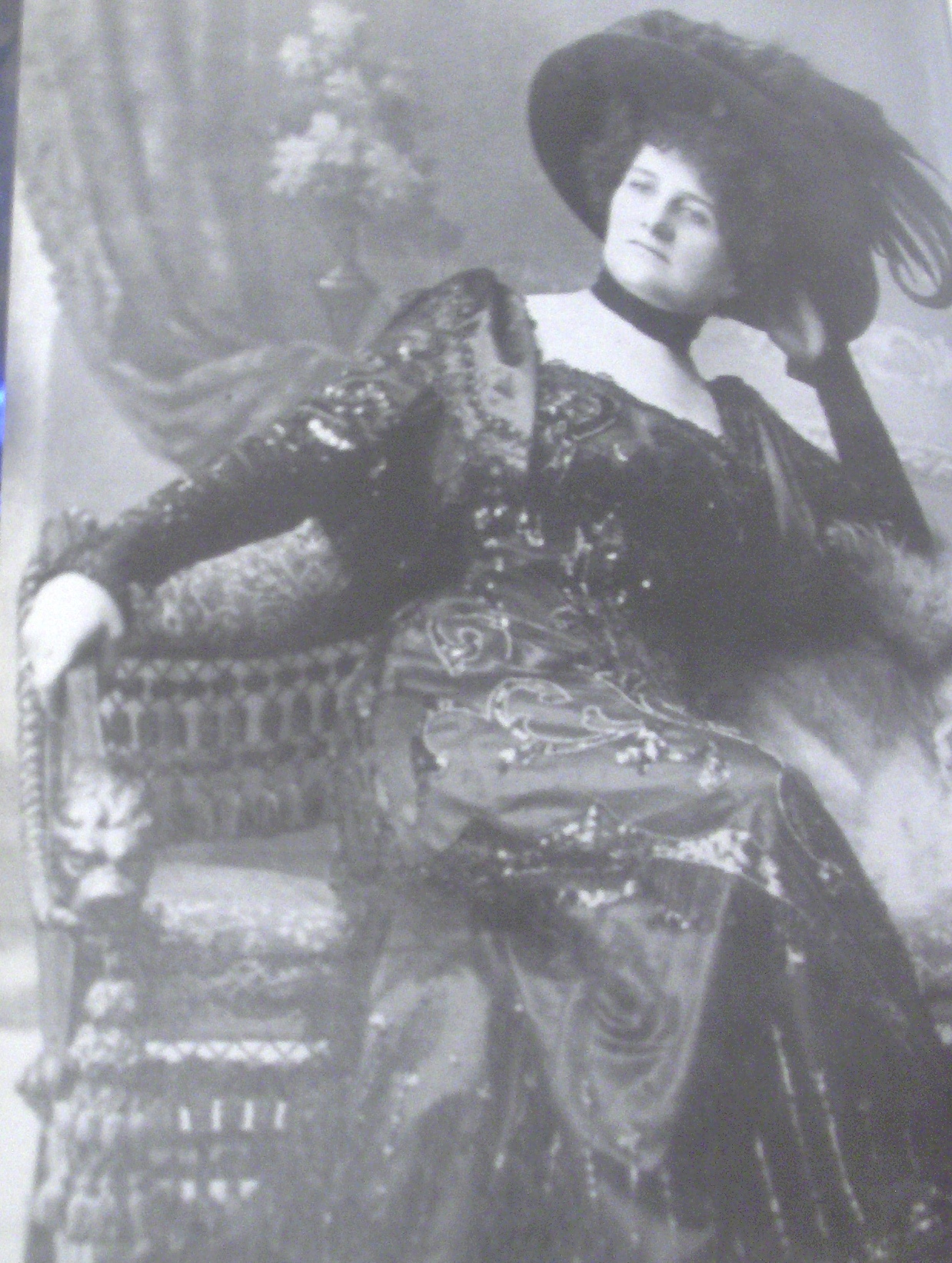
For the latest travel info, bookmark our main travel info article, which is updated daily.
Read the Croatian Travel Update in your language - now available in 24 languages
PHOTOS: Before & After - How HNK Afterhours Lost Its Cool
ZAGREB October 13, 2020 – Since early June 2020, the Croatian National Theatre Zagreb has served as a nightly meeting point for the city's youths. In these pictures and video we see the incredible youth phenomenon as it once was and also how HNK afterhours lost its cool
Built in 1895, the Croatian National Theatre Zagreb (HNK Zagreb) is one of the finest pieces of architecture in a city not short on fine Austro-Hungarian buildings. Sitting in the middle of Republic of Croatia Square, it is the focal point of Lower Town. A multi-purpose space, it has world-class opera and ballet companies in-house. © David Bakarić
© David Bakarić
This week, several media outlets have reported on the gathering of youths outside the theatre, especially on weekend nights. While an interesting read, including the thoughts of a sociologist, these stories are a bit out of date. Because the truth is, the party is over - HNK afterhours lost its cool many weeks ago.
BEFORE © Marc Rowlands
© Marc Rowlands
In early June, when the three-month Coronavirus lockdown finally ended, HNK Zagreb became the de facto meeting point for Zagreb youth. It all happened rather spontaneously. There were no advertisements. Word spread from peer-to-peer and young people from as far away as Rijeka, Ivanic-grad and Zabok made the journey to take part in the youth culture phenomenon. © David Bakarić
© David Bakarić © Marc Rowlands
© Marc Rowlands
It was a joyful scene - thousands of people from every youth tribe imaginable; punk and metal fans, sports students, classical musicians, football fans, young patriots, LGBT teens, devout Christians and kids who would usually go to the cajke (folk music) club sat side-by-side. It was good-natured. Everyone was glad to be out of the house and be able to meet their peers. Everyone got along. © David Bakarić
© David Bakarić © David Bakarić
© David Bakarić © David Bakarić
© David Bakarić © David Bakarić
© David Bakarić
Impromptu theatre performances and music concerts took place. Soundsystems were set up. There was laughter, music, dancing and all round good cheer. © David Bakarić
© David Bakarić © David Bakarić
© David Bakarić
'We are extremely happy and positive that our theatre has been recognized as a place of gathering and sharing positive vibrations between generations,' an official from the Croatian National Theatre Zagreb told this journalist when approached to comment on HNK afterhours. 'Ever since 2014, our hope was to create a warm and welcoming feeling here for everybody, for all age groups and different audiences; to make theatre alive outside the building walls.' Responsible young partygoers cleaned up after themselves in early June. Those cool kids have long since disappeared from HNK afterhours © David Bakarić
Responsible young partygoers cleaned up after themselves in early June. Those cool kids have long since disappeared from HNK afterhours © David Bakarić
AFTER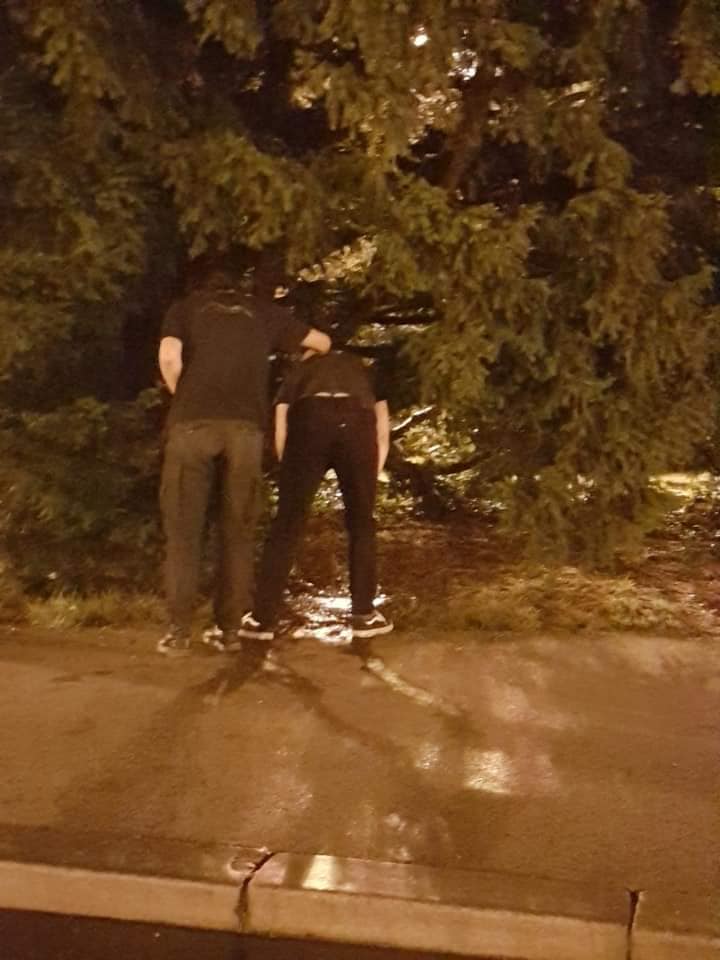
HNK afterhours lost its cool many weeks ago. Becoming an expected rather than a spontaneous gathering was perhaps its death knell. That, and the fact that although everyone knew hundreds were gathering there, no provisions were made for these socialising young people. With no other option on Republic of Croatia Square, the bushes and gardens around the theatre became their toilets.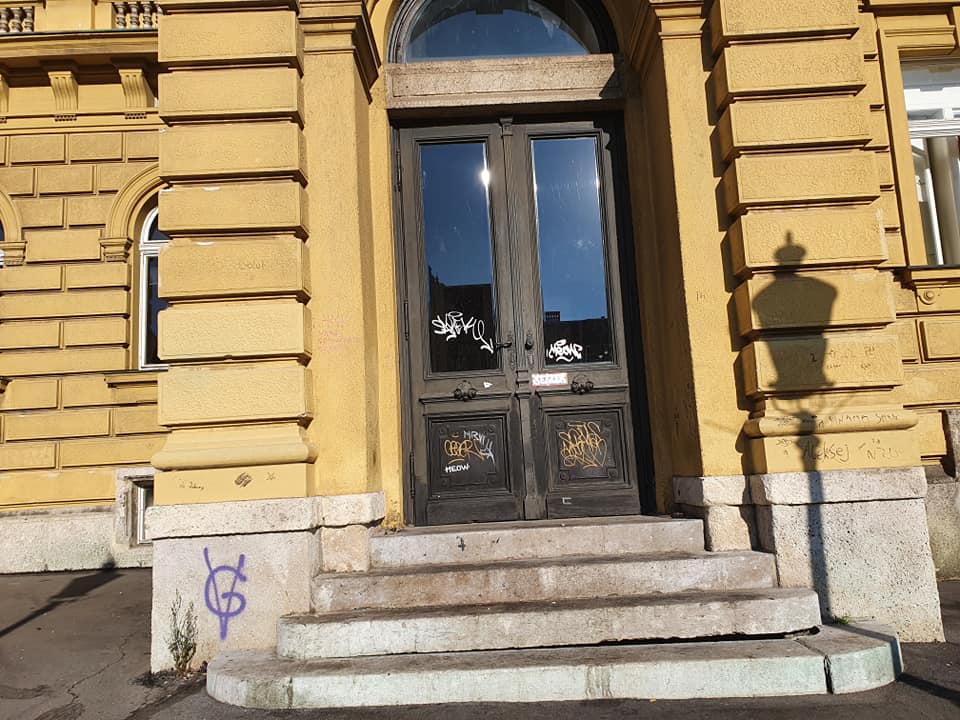
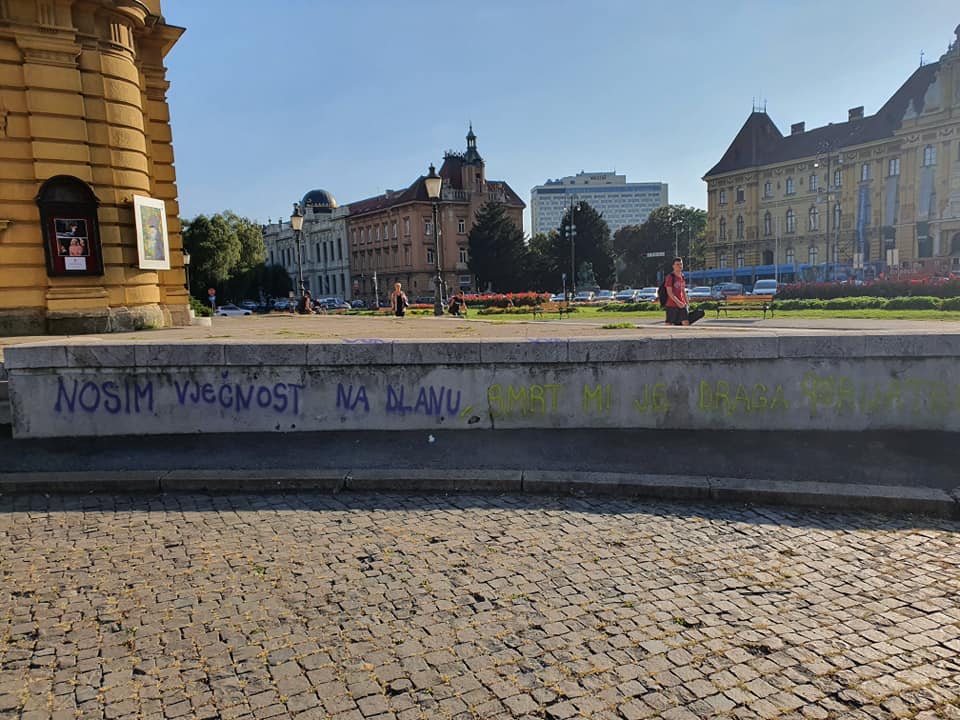
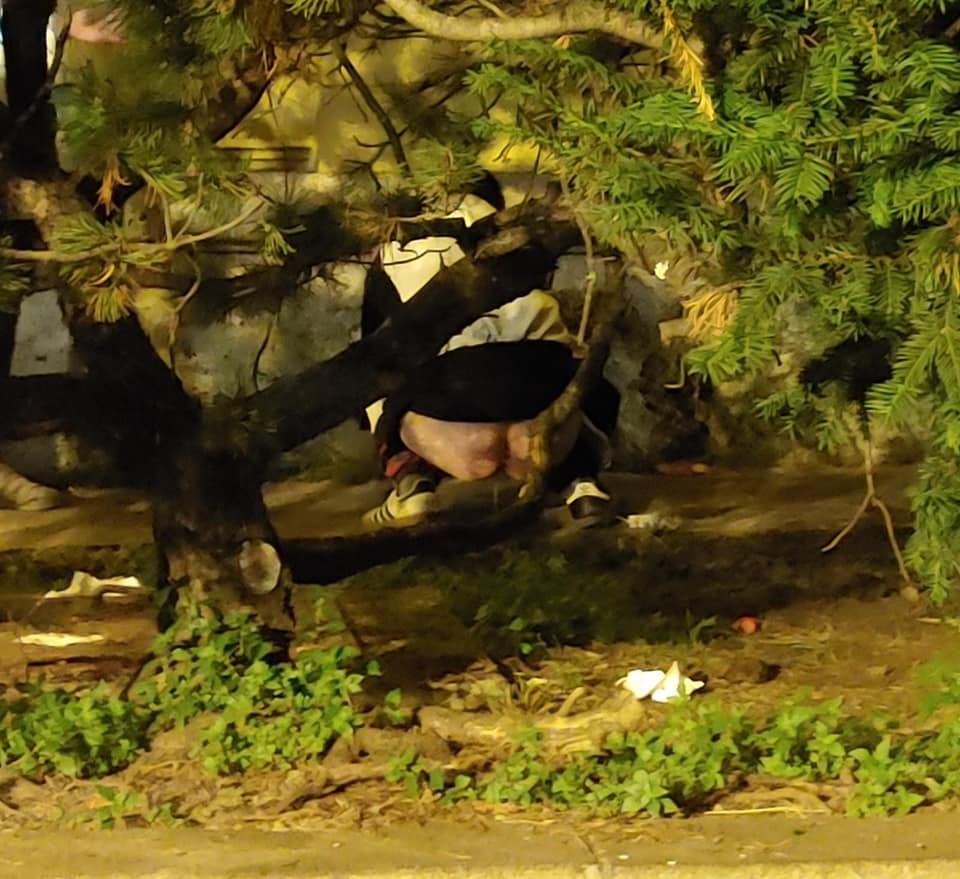
It was instantly noticeable when HNK afterhours lost its cool - all of the cool kids just stopped coming. What was once a representation of all the city's youth tribes dwindled to a hardcore few hundred of late-night drinkers with nothing better to do and no place else to go. The theatre and most of the music stopped.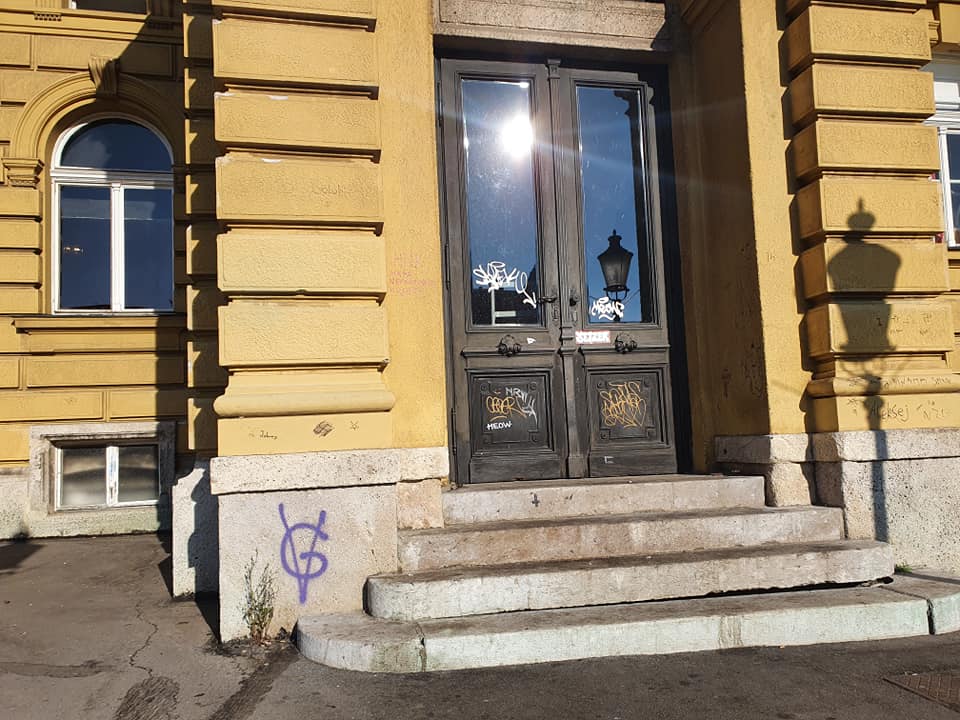
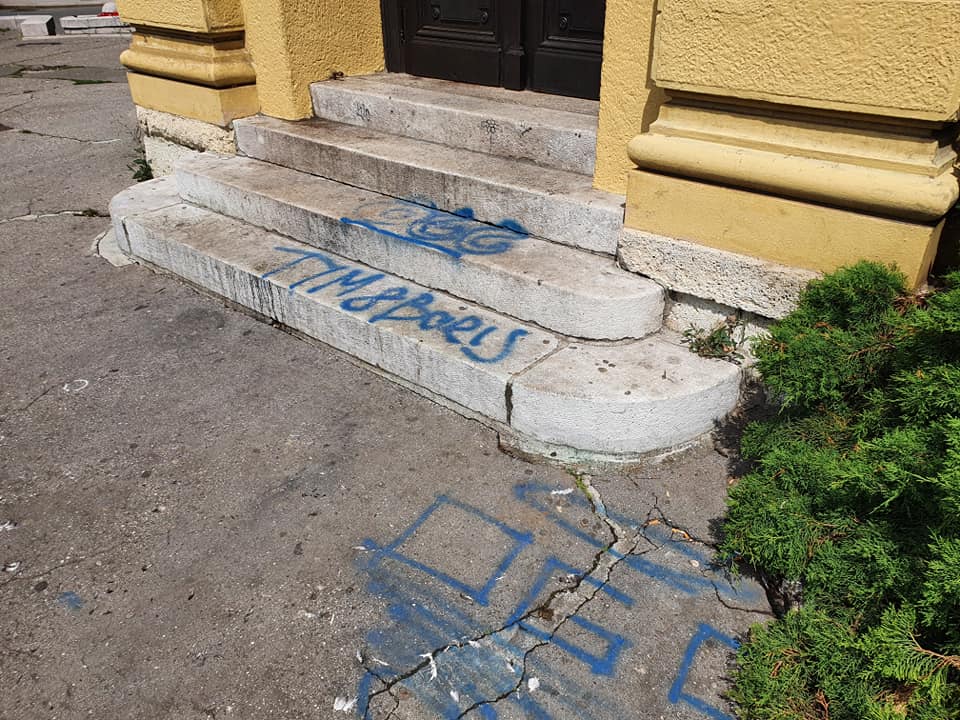
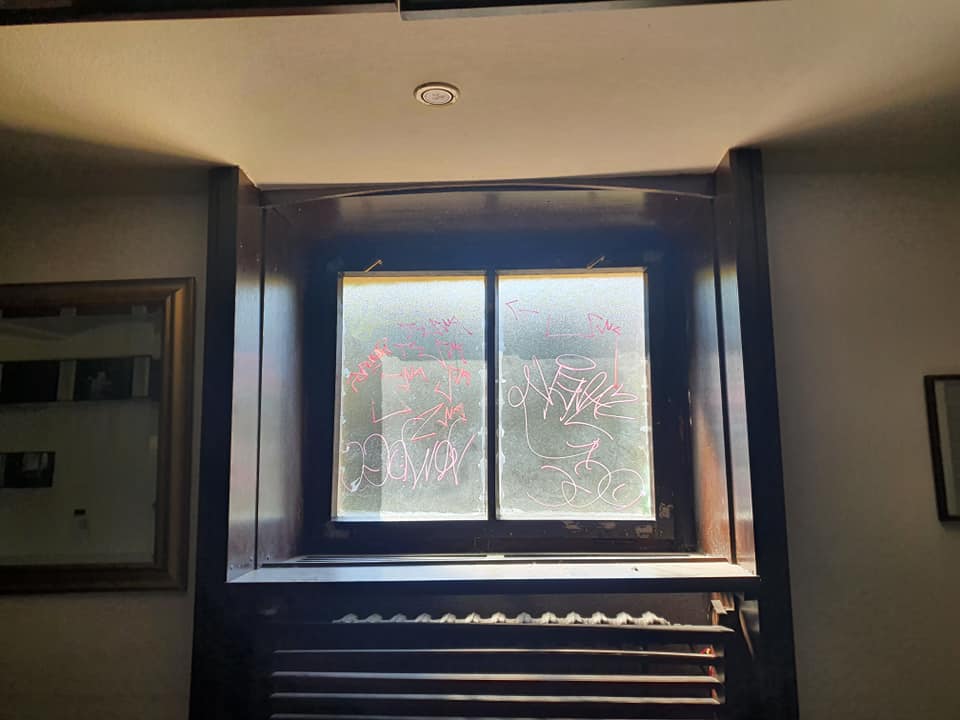
Then the violence, graffiti and vandalism began. The excessive drinking was one major sign of youth insecurity – people not entirely comfortable with themselves within large groups got drunk to ease their discomfort. Then, they threw up in the bushes. But the violence and graffiti were greater signs of insecurity and immaturity.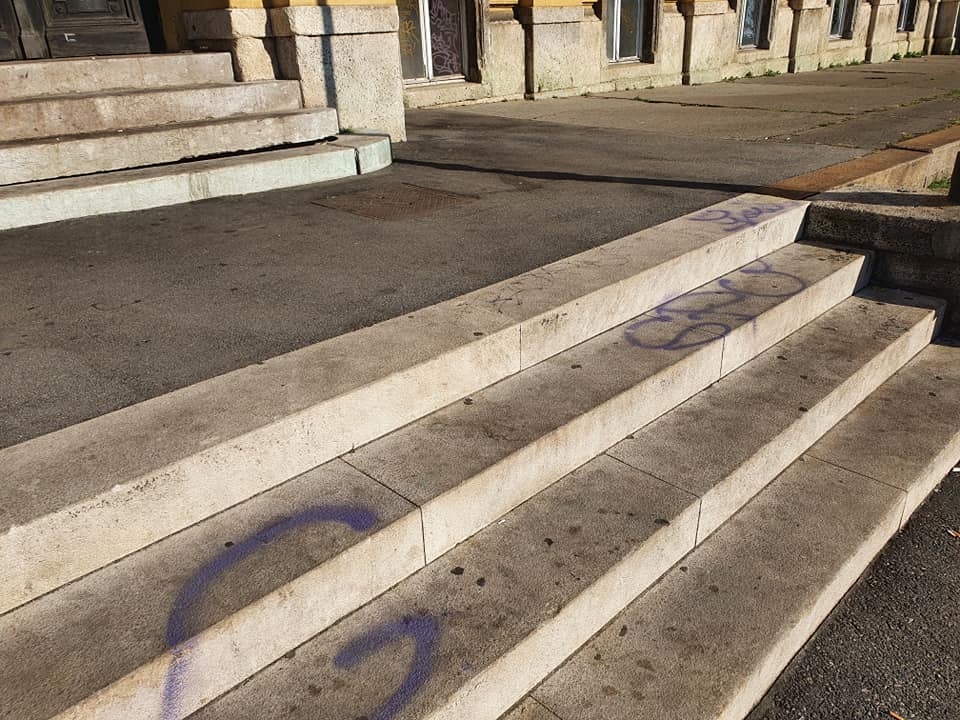
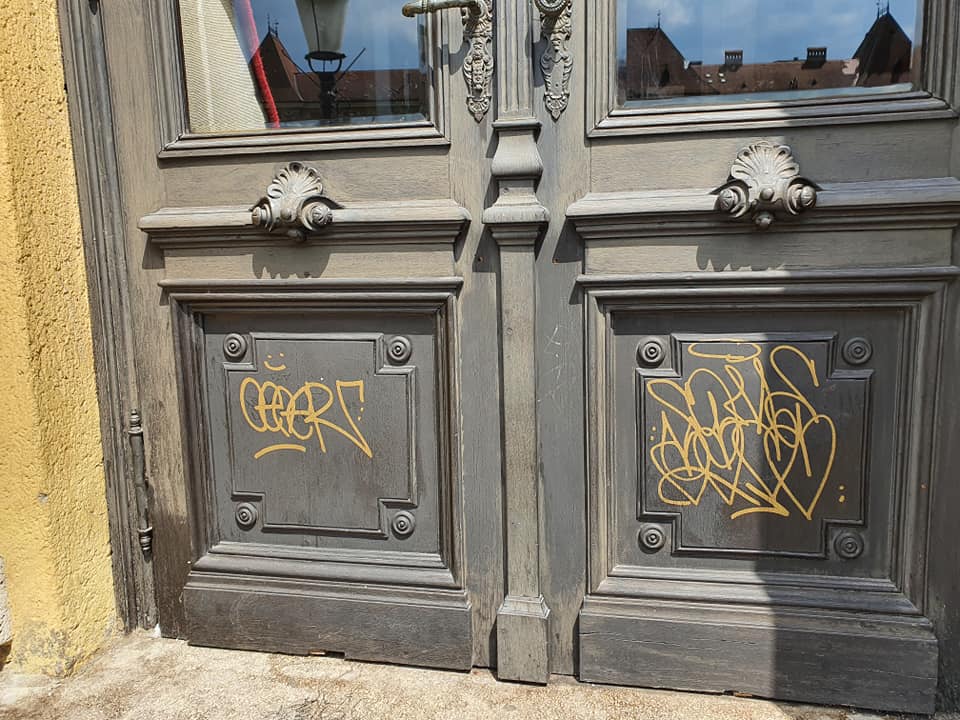
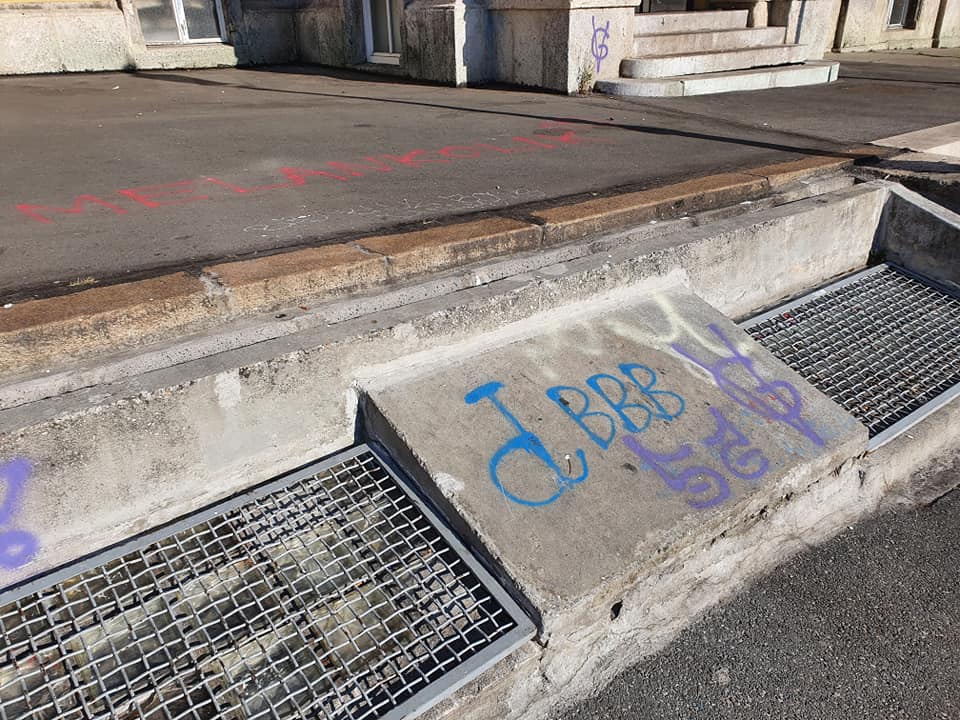
Like dogs urinating on street corners to mark their territory, mindless graffiti 'tags' appeared all over the Croatian National Theatre Zagreb – its steps, its windows, its antique doors. In an effort to leave a permanent mark, the insignificant few seemed determined to destroy everything that had once been joyful and good-natured about this gathering.
Zagreb police intervene when one drunken male started to physically abuse some of his peers. Present at the scene, this journalist commented to a friend that the police had acted bravely. The peer commented that the police had looked scared. They were surrounded by hundreds of spectators to the violence.
You can now guarantee there will be some violence outside the theatre on every weekend night. Zagreb police, who have shown remarkable patience and restraint throughout the whole phenomenon, sit far from the crowd and let the youngsters party. However, Zagreb Police Administration have said that from May 1 to September 30, the police intervened around the Croatian National Theatre Zagreb about 50 times, based on allegations of possible disturbance of public order and peace. In an effort to perhaps try and understand the frustrations of youths at this time, they have filed misdemeanor charges against only six people. This, despite a small, insecure and immature male section of the crowds flexing their muscles against smaller peers – or the police themselves – on a nightly basis. A small cabal of latecomers are ruining the reputation of a youth culture movement which deserves to be much better remembered.
 A young man shows the marks around both eyes that he received in an unprovoked attack at HNK afterhours on the weekend of 9 October 2020
A young man shows the marks around both eyes that he received in an unprovoked attack at HNK afterhours on the weekend of 9 October 2020
When you're young, it can be difficult to hear that the party is over. After you've had such a good time, you don't want to go home. You want the good times to last forever. But, this party is well and truly finished. HNK afterhours lost its cool many, many weeks ago. It is a rather sad remnant of something that was beautiful while it lasted. But, now it is time for the party to move elsewhere or for the attendees to go home. This beautiful building, its grounds and surrounding residents have played host for long enough. They each deserve a break.
The use of uncredited photographs in this article was granted on condition that the submitting photographers remain anonymous
For the latest travel info, bookmark our main travel info article, which is updated daily.
Read the Croatian Travel Update in your language - now available in 24 languages.
Mass Parties Outside Croatian National Theatre in Zagreb in Time of Corona
ZAGREB, October 11, 2020 - The Croatian National Theatre (HNK) in Zagreb has recently become a popular place for outdoor gatherings, where people gather every weekend, especially after midnight, when many bars close due to coronavirus measures.
Mass outdoor parties have been taking place in Republic of Croatia Square where the HNK building stands since May, when epidemiological measures were relaxed, and about 500 people gathered there last weekend as well.
Even after midnight when, according to epidemiological measures, all social life and entertainment in the city should stop, young people gather in groups, drink alcohol and listen to different genres of music.
Next to one of several speakers is 19-year-old Antonio, and asked why he is there, he told Hina that he currently has nowhere else to be.
HNK and social gathering
Sociologist Dino Vukusic from the Ivo Pilar Institute of Social Sciences commented on the diversity of young people gathering in front of the HNK building.
According to him, the HNK is not a new place of gathering, but this particular HNK was created during the pandemic. He thinks it is interesting that these spontaneous gatherings still persist.
There are many different people there now -- some belong to subcultures that have gathered outside the HNK before, and there also those who will, once night clubs reopen, go to night clubs, Vukusic said, adding that they are a very heterogeneous group of people.
The music and the style of the HNK gatherings are driven by the hedonism of young people and they are a cry for spending free time in a hedonistic way at a time like this, he said.
Residents request protection
The noise, mess and urinating that take place on green areas around the HNK have been disturbing the residents of Republic of Croatia Square, and they are calling for some protection despite the fact that there are only about ten of them.
One of the residents, Melita Kovacevic, who often cannot fall asleep because of the noise, told Hina that in the last few months, she and her neighbours had been reporting everything to the police.
Zagreb police told Hina that from May 1 to September 30, they intervened about 50 times around the HNK following reports of possible disturbing of the peace. However, they have filed misdemeanor charges against only six people.
The Cistoca city sanitation company told Hina that their employees had been intensively cleaning the HNK location and they had asked those gathering there to use bins to dispose of their litter, although there are just a few smaller bins around the square.
HNK Zagreb Head Honoured with High Italian Decoration
ZAGREB, November 25, 2019 - The head of the Croatian National Theatre (HNK) in Zagreb, Dubravka Vrgoč, has received the Order of the Star of Italy whereby Italy acknowledges her outstanding contribution to the promotion of friendship and cooperation and persistent work on the development and expansion of cooperation between the two countries in the field of theatre art.
Vrgoč was presented with the decoration by Italian Ambassador Adriano Chiodi Cianfarani at a ceremony held at the HNK last Wednesday.
Cianfarani said the decoration was a high civic award whereby the Italian state honoured outstanding contributions, by Italians abroad or foreign nationals, to the promotion of friendship and cooperation.
He said that Vrgoč had been awarded for her outstanding contribution to the development of relations between Italy and Croatia in the field of culture and that the decoration bore witness to the importance of culture, cultural cooperation and cultural diplomacy in international relations.
More news about the Croatian National Theatre can be found in the Lifestyle section.
Nikola Šubić Zrinski Opera to Be Live-Streamed Internationally
ZAGREB, November 1, 2019 - The opera titled "Nikola Šubić Zrinski", written and composed by Ivan Zajc in 1876, which will be performed by the Croatian National Theatre (HNK) in Zagreb on Saturday (2 November), will be live-streamed on the OperaVison platform in parallel to a global audience.
Thus, this opera which the platform describes as "Zajc's patriotic opera" will be available to millions of viewers.
The platform that promotes opera music informs viewers that this Croatian opera "retells the story of Nikola Šubić Zrinjski’s daring leadership and heroic sacrifice during the real-life Siege of Siget."
"Packed with powerful music – including the rousing male chorus ‘U boj, u boj!’ – it has held a treasured place in the Croatian repertoire ever since its wildly successful premiere in 1876."
Saturday's rendition in the HNK will be under the baton of maestro Nikša Bareza.
This opera will be available at this website: https://www.youtube.com/channel/UCBTlXPAfOx300RZfWNw8-qg until May next year.
More culture news can be found in the Lifestyle section.
17th World Theatre Festival to Feature 3 Productions by Leading Directors
ZAGREB, September 16, 2019 - The World Theatre Festival (FSK), which will be taking place at Zagreb's Croatian National Theatre (HNK) on September 25 - October 1, will include three productions by leading European stage directors, which HNK director Dubravka Vrgoč described as the best productions of this year's European and world theatre season.
The three plays are Lars von Trier's Breaking the Waves, a production by Les Theatres De La Ville De Luxembourg, stage-directed by Luxembourg actress and theatre director Myriam Muller, An Enemy of the People, a play by the great Nordic writer Henrik Ibsen, stage-directed by prominent German director Thomas Ostermeier, and the project "Nachlass" by the Rimini Protokoll troupe, stage-directed by Stefan Kaegi.
This year's edition of the FSK is the 17th and over the past 16 years the event brought to Zagreb more than 60 major European and world theatre troupes, Vrgoč said.
The three plays are the best of this year's European and world production and are special in the sense that they herald new theatre trends, Vrgoč said.
More news about festivals can be found in the Lifestyle section.
Best of St. Petersburg Theatre at Zagreb's HNK
ZAGREB, September 13, 2019 - The Croatian National Theatre (HNK) in Zagreb is launching its new season with four of the best plays by the St. Petersburg theatre as part of the St. Petersburg International Theatre Season Festival which opens on Thursday with a play entitled "Taras" based on Nikolai Gogol's novel "Taras Bulba".
HNK director Dubravka Vrgoč said that this is a unique opportunity for Croatia's public to see what the theatre in that significant Russian city is like and for Russian to be heard in Zagreb's HNK and to see the current trends in Russian theatre.
"We are happy that we can launch the season with a festival, an unusual event because it represents the best of the best from the St. Petersburg theatre season," Vrgoč told a press conference.
The festival's art director Victor Minkov considers that such good cooperation as the one between the HNK and St. Petersburg is rare and that this, the 13th season, presents productions that that city can be proud of.
Russia's ambassador to Croatia Anvar Azimov said that this is yet another page in the development of Russian-Croatian relations and that he is convinced that visitors will enjoy the programmes that have been prepared.
More theatre news can be found in the Lifestyle section.


